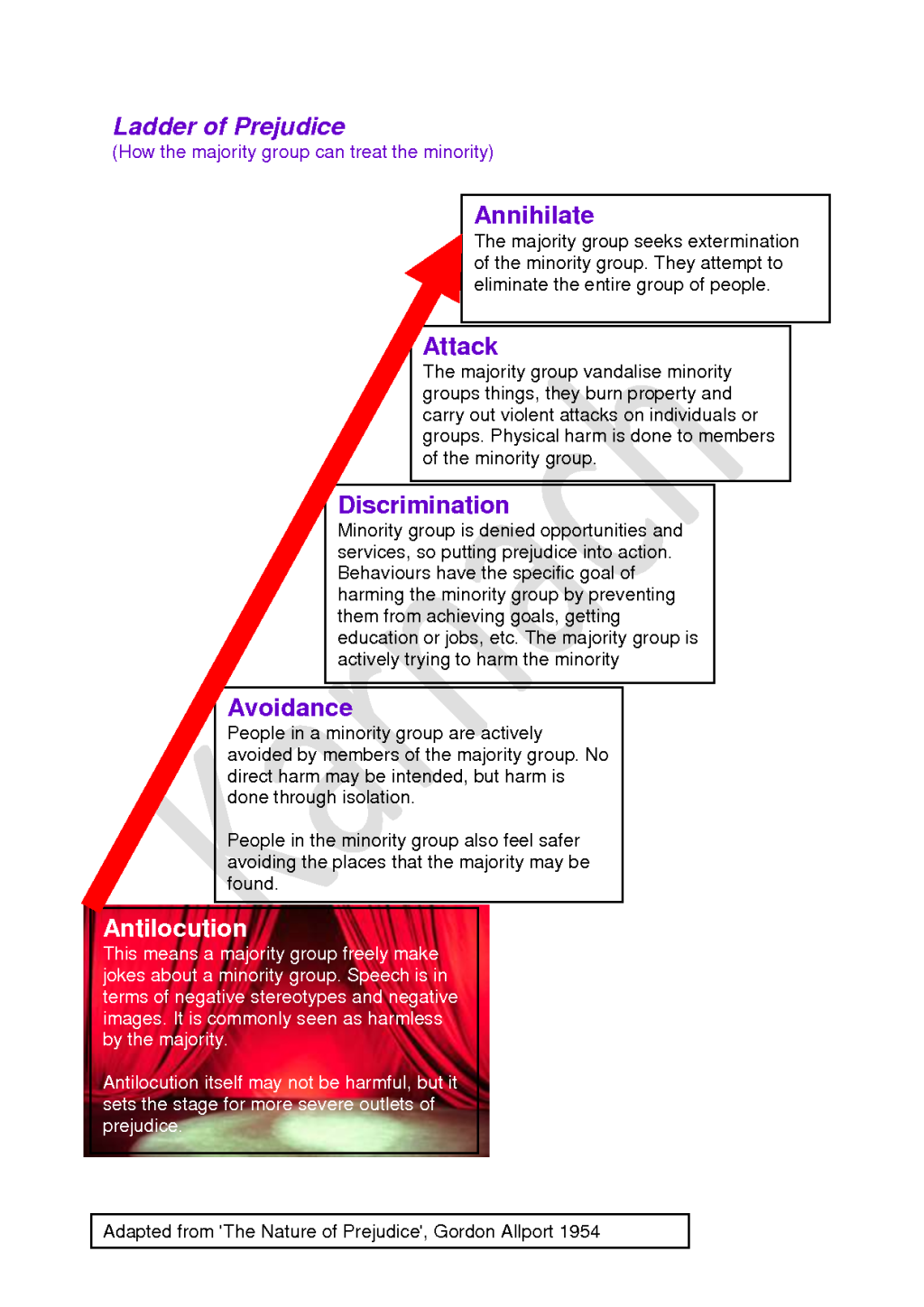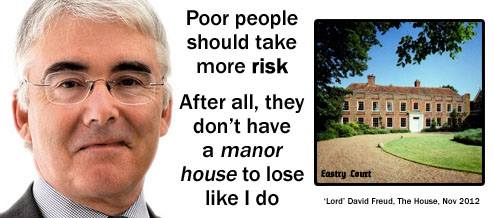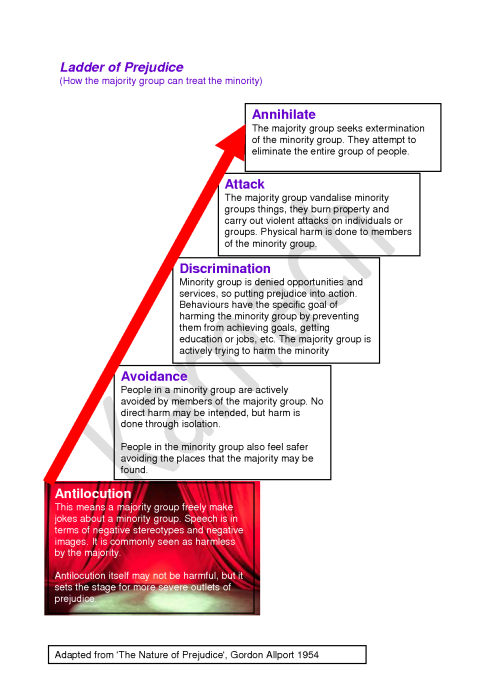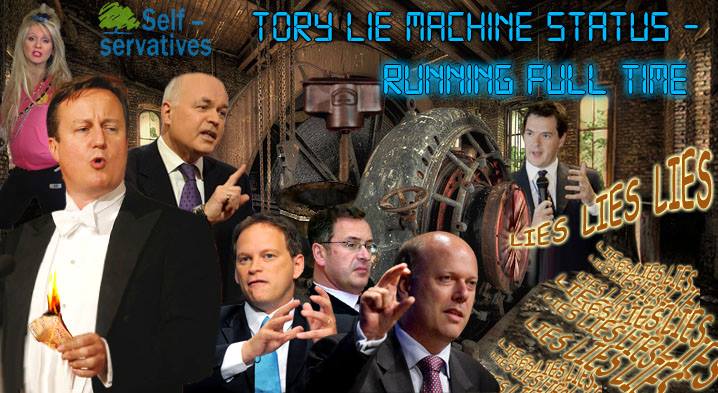Over the past four years, we have witnessed the political right using rhetoric that has increasingly transformed a global economic crisis into an apparently ethno-political one, and this also extends to include the general scapegoating and vilification of other groups and communities that have historically been the victims of prejudice and social exclusion: the poorest, unemployed and disabled citizens. These far-right rhetorical flourishes define and portray the putative “outsider” as an economic threat. This is then used to justify active political exclusion of and forment prejudice against the constitutive Other.
The poorest citizens in the UK have been politically disenfranchised. Politically directed and constructed cultural and social boundaries, exclusionary discourses and practices create and define strangers. In Zygmunt Bauman’s analysis of the Holocaust, the Jews became “strangers” par excellence in Europe, the Final Solution was an extreme example of the attempts made by societies to excise the (politically defined) uncomfortable and indeterminate elements existing within them. Here in the UK, it’s evident that many citizens now feel like strangers in their own communities – they have been politically alienated.
Definitions of citizenship and associated privileges have been reformulated and increasingly restricted here in the UK, and the current conservative neo-liberal framework of intensifying an aggressive ‘competitive individualism’ is further motivated by far right reforms that embed social and economic Darwinism.
This has provided opportunity for UKIP and far right groups to become established as a populist part of the mainstream political conversation, the Tory rhetoric, founded on social divisions and established hierarchy, has created a space for UKIP’s subversive “insurgency” to flourish. Just as the far right flourished during the Thatcher era.
UKIP has an extremist appeal that is based entirely on fear-mongering, prejudice, incitement; attempts to shape and perpetuate hatreds, social group phobias and deliberate often violent attempts at further undermining social cohesion. UKIP try to make this extremely divisive approach somehow “respectable”, (by the frequent use of phrases such as “we say what many think”, “we speak our minds” and “it’s not racist to be worried about too many people coming here” are used to attempt to normalise and justify what are actually very objectionable, prejudice-laden opinions, for example,) while offering nothing at all that might improve our living conditions and quality of life. Prejudice and hatred are being re-labelled as “free-speech.”
The right wing more generally tend to hold beliefs that some human lives have more worth than others. But when that view has been permitted to surface and become normalised in societies, it has historically led to atrocities.
UKIP is also manipulating an anti-politics, anti-establishment public mood. This is not just about gaining electoral success but in shifting the terms of debate. Farage admits that UKIP’s effect on the Tories is “psychological not numerical”. His success in this encourages the further right Tory backbenchers, encourages the populist strategies – wedge and dog whistle racism – of Lynton Crosby, as it forces political and media focus on right wing concerns, like welfare and immigration. Moral boundaries are being pushed in the UK.
UKIP utilises, amplifies and perpetuates an increasingly poisonous climate of distrust and cynicism. UKIP manipulates public views and in particular, they perpetuate a myth that politicians of all colours are an out of touch elite that is far removed from, and largely unconcerned with, the everyday struggles of “ordinary people.” So they manufacture an ‘us and them’ to divert our attention from the real cultural chasm. The wealthy elite and the working class.
UKIP make the mistake of portraying the entire political class as pampered elitists, which is grossly inaccurate. While it’s true that the Conservative party most certainly can claim aristocratic membership, the same isn’t true of the Labour party. Furthermore, Farage, an ex-Tory public school boy (and Miliband attended a comprehensive school), an ex-stockbroker, with offshore tax havens and an considerable inclination for far right policy is hardly likely to be “in touch” with the man on the Clapham omnibus.
Although UKIP suffers from a chronic, persistent failure to appeal to three key groups of voters – women (because of the chauvinistic and anti-feminist views of UKIP members and politicians); young people (who find the party almost farcically out of touch with their own world-view) and ethnic minorities (because of its strident, extremely prejudiced and emotive language about immigration) UKIP does represent something of a “blue-collar revolt”- its electoral base is “old, male, working class, white and less educated,” say academics Matthew Goodwin and Robert Ford.
This would explain the strong anti-intellectual prejudice. Anti-intellectualism is a dominant feature of far-right politics – especially along the political spectrum of authoritarianism, totalitarianism and fascism. Nazism, despite the title “national socialists’ workers party”, was along the authoritarian far right of the political spectrum. The title was adopted to persuade the left wing working classes and trade unions to vote for the Nazis. Once in power, the Nazis murdered many trade unionists, socialists, communists and anarchists, among other political ‘dissidents’ on the left. The problem with populists is they tell lies. They manipulate and divide people to get their own way.
 Anti-intellectualism and inverted snobbery from the patriotic nationalist and racist Britain First site on Facebook
Anti-intellectualism and inverted snobbery from the patriotic nationalist and racist Britain First site on Facebook
The conservatives have parochialised both explanations of and responses to the global economic crisis. Parochialism entails neglect of the interests of identified “outsiders”, and this kind of isolationist tendency has also provided a political platform for nationalism. It has also permitted a right wing politics of aggression, lying and corruption.
Parochialism tends to support inter-group hostilities, and it tends to lead to violations of human rights. Parochialism directly opposes a fundamental set of principles that constitute these rights: namely that all humans beings are of equal worth, and that human rights are universally applicable – they apply to everyone. That is the whole point of them.
The alternative perspective is Social Darwinism, which is used to justify a hierarchy of entitlement to rights. Modern eugenics was rooted in the Social Darwinism of the late 19th century, with all its metaphors of fitness, competition, and rationalisations of inequality. For progressives, eugenics was a branch of the drive for social improvement or perfection that many reformers of the day thought might be achieved through the deployment of science to “good” social ends. Eugenics, of course, drew appreciable support from Conservatives, concerned to prevent the “proliferation” of lower income groups and save on the cost of providing welfare support for them. The Tories always seem to forget that social security is publicly funded, however.
The progressives progressed. They ceased to believe that progress was about advancing the human race by physical “improvement” – that kind of supremacist view was a product of its time – context bound by a cumulatively catastrophic zeitgeist. Progressives liberated themselves from the superficial characteristics and taxonomic ranking of human beings – the emphasis on “what” we are – and began to cherish “who” we are, delving into our human potential and celebrating our diversity as much as our individual equal worth.
Although eugenics programmes are usually associated with Nazi Germany, they could, and did, happen everywhere They focused on manipulating heredity or breeding to produce “better” people and on eliminating those considered biologically inferior. In the 1920s and 1930s eugenic sterilisation laws were passed in 24 of the American states, in Canada, and in Sweden. Here in the UK, Malthus saw overpopulation as the cause of misery and poverty, which was drawn from an element of Darwinism that contributed to the devaluing of human life, due to its stress on the struggle for existence and competition for resources.
Eugenic doctrines were criticised increasingly during the inter-war years, on scientific grounds and for their class and racial bias, and were attacked widely when the eugenics narrative and role in the Holocaust was revealed. Human rights evolved in response to the Holocaust, to ensure that the atrocity of genocide doesn’t happen again. Human rights are premised on the belief that all human lives are of equal value. That is why those rights apply to everyone, that was the whole point of them, and to exclude people on whatever basis from enjoying those rights is to stray onto a very dangerous slippery slope in terms of recognising the equal worth of other human beings. Again. But here we are.
The concept of adaptation remains, and allows the right to claim that the rich and powerful are better adapted to the social and economic climate of the time, and the concept of natural selection perpetuates the supremacist argument that it is natural, normal, and proper for the strong to thrive at the expense of the weak.
British and American imperialists employed the language of Social Darwinism to promote and justify Anglo-Saxon expansion and domination of other peoples. Such different personalities as Machiavelli, Sir Francis Bacon, Ludwig Gumplowicz, Adolf Hitler, and Benito Mussolini, each reasoning on different grounds, nevertheless arrived at similar conclusions. Imperialism to them is part of the natural struggle for survival. Those endowed with “superior” qualities are “destined” to rule all others. Imperialism has been morally excused as the means of liberating peoples from tyrannical rule or of bringing them the benefits of a ‘superior’ way of life. Imperialism is all about human aggressiveness and greed, the search for security, the drive for power and prestige and nationalist emotions, among other things.
Nationalism is anti-progressive. It’s a paradigm of competitive individualism that further undermines principles of cooperation, community, equality and social cohesion. It’s also a recognisable symptom of the rise of fascism. The UKIP brand of Parish pump politics nurtures fear, spite and vilifies people on the basis of one of our most wonderful assets: our human diversity.
Ordinary people did not caused the financial crisis. The real culprits are sat untouched in mansions, making even more money from the “austerity” imposed on the most vulnerable citizens, while too many comply with misdirected blame of their oppressed brothers and sisters, rather than a political elite that have deliberately engineered a prolonged recession in the UK, and continue with a programme of radical social engineering. Conservative governments always do.
Our current social hardships have been created by this government’s policies and not powerless immigrants, disabled people or those who are unemployed. These are people whose lives are being broken by a ruthless, greedy, supremacist, corrupt elite currently holding power over the UK.
The answer to our problems isn’t making the rest of the world go away, it isn’t bigotry and “national pride” – we surely learned those are not tenable answers from the terrible consequences of Nazism. Dividing people by using blame and prejudice only weakens our opposition to oppression.
UKIP, however, have capitalised on the current government’s lack of clear, open and honest debate about why the UK has become more unequal and anomic (anomie – a sociological concept – is the breakdown of social bonds between an individual and the community resulting in fragmentation of social identity and rejection of self-regulatory values. This has been heightened by a significant discrepancy between Conservative ideology – rhetorical values commonly professed – and what is real, actual and achievable in our everyday life).
UKIP have exercised a crass manipulation of those who are existentially destabilised: many people are confused and anxious about where they belong, where their country is heading, and why the current government won’t do anything about it. Of course Farage denies vigorously that in giving these anxieties a directed voice they are merely acting as outlets for prejudice and faux protest votes. But prejudice, protest and a politics of fear is nevertheless UKIP’s theme.
And farce. Like the UKIP councillor blamed the recent floods on the Government’s decision to legalise gay marriage. David Silvester said the prime minister had acted “arrogantly against the Gospel,” and God had punished the Thames Valley as a result. And John Sullivan, a UKIP candidate, explained that physical exercise in schools can “prevent homosexuality”.
Farage says he represents such “ordinary people”. As I stated earlier, he is an ex-Tory, a public school-educated former banker and stockbroker, whose policies will help him and his kin, in maintaining the status quo, while presenting a fake challenge to the establishment. He set up a trust fund in an offshore tax haven, in a bid to avoid paying thousands of pounds in tax money. So UKIP are a “protest vote” for pretty much more of the same. It’s a despicable con.
Farage claims he is the voice of “common sense”, while having allegiance with every kind of homophobic, wild conspiracy theorist, misogynist, racist, chauvinist, classist, peevish, vindictive and resentful inadequate. The only sense he and his followers seem to have in common is a fear of anyone who is not like them.
Farage disowned the entire 2010 UKIP manifesto – and not in the transparent manner of an honest politician admitting to past mistakes. Instead, he pretended he knew nothing of his party’s promises for a dress code for taxi drivers and a state-enforced repainting of the nation’s trains in traditional colours. Imagine if anyone else in public life said that a document they had put their name to, and claimed ownership of, was “drivel” and tried to avoid awkward questions by pretending that it had never been read.
“Our traditional values have been undermined. Children are taught to be ashamed of our past. Multiculturalism has split our society. Political correctness is stifling free speech”, states the UKIP manifesto. Their “Pocket Guide to Immigration” promises to “end support for multiculturalism and promote one, common British culture”. After attracting some negative publicity, it has disappeared from here, but an archived version can be seen here.
Bigots quite often seem to use the freedom of speech plea to justify their prejudice. They say they have a right to express their thoughts. But speech is an intentional ACT. Hate speech is intended to do harm – it’s used purposefully to intimidate and exclude vulnerable groups. Hate speech does not “democratise” speech, it tends to monopolise it. Nor is it based on reason, critical thinking or open to debate. Bigotry is a crass parody of opinion and free speech. Bigots are conformists – they tend not to have independent thought. It’s prejudice and Groupthink.
Being inequitable, petty or prejudiced isn’t “telling it like it is” – a claim which is an increasingly common tactic for the right, and particularly UKIP – it’s just being inequitable, petty, manipulative and prejudiced. And some things are not worth saying. Really. We may well have an equal right to express an opinion, but not all opinions are of equal worth. And UKIP do frequently dally with hate speech. Hate speech generally is any speech that attacks a person or group on the basis of e.g. race, religion, gender, disability, or sexual orientation. If we permit hate speech to flourish, history has already informed us that it ultimately leads to violence, murder and genocide.
In law, hate speech is any speech, gesture or conduct, writing, or display which is forbidden because it may incite violence or prejudicial action against or by a protected individual or group, or because it disparages or intimidates a protected individual or group. Critics have argued that the term “hate speech” is a contemporary example of Newspeak, used to silence critics of social policies that have been poorly implemented in order to appear politically correct. This term was adopted by US Conservatives as a pejorative term for all manner of attempts to promote multiculturalism and identity politics, particularly, attempts to introduce new terms that sought to leave behind discriminatory baggage attached to older ones, and conversely, to try to make older ones taboo.
“Political correctness” arose originally from attempts at making language more culturally inclusive. Critics of political correctness show a curious blindness when it comes to examples of Conservative correctness. Most often, the case is entirely ignored or censorship of the left is justified as a positive virtue. Perhaps the key argument supporting this form of linguistic and conceptual inclusion is that we still need it, unfortunately. We have a right-wing logocracy, creating pseudo-reality by prejudicial narratives, phrases and words. We are witnessing that narrative being embedded in extremely oppressive policies and in their justification rhetoric.
The negative impacts of hate speech cannot be mitigated by the responses of third-party observers, as hate speech aims at two goals. Firstly, it is an attempt to tell bigots that they are not alone. It validates and reinforces prejudice.
The second purpose of hate speech is to intimidate a targeted minority, leading them to question whether their dignity and social status is secure. In many cases, such intimidation is successful. Furthermore, hate speech is a gateway to harassment and violence. (See Allport’s scale of prejudice, which shows clearly how the Nazis used “freedom of speech” to incite hatred and then to incite genocide.)
As Allport’s scale indicates, hate speech and incitement to genocide start from often subtle expressions of prejudice. The dignity, worth and equality of every individual is the axiom of international human rights. International law condemns statements which deny the equality of all human beings. This process advances by almost inscrutable degrees. The public become bystanders, because they don’t fully understand what is happening. Until a group is attacked. Someone is murdered. Then someone else.
Article 20(2) of the ICCPR requires states to prohibit hate speech. Hate speech is prohibited by international and national laws, not because it is offensive, but rather, because it amounts to the intentional degradation and repression of groups that have been historically oppressed.
The most effective way to diffuse prejudice is an early preventative approach via dialogue: education and debate. Our schools, media and public figures have a vital part to play in positive role-modelling, in challenging bigotry, encouraging social solidarity, respect for diversity and in helping to promote understanding and empathy with others.
Hate speech categories are NOT about “disagreement” or even offence. Hate speech doesn’t invite debate. It’s about using speech to intentionally oppress others. It escalates when permitted, into harassment and violence. We learned this from history, and formulated human rights as a consequence. UKIP would have us unlearn the lessons of the Holocaust so that people can say “I’m not being racist, but…” or “It’s not wrong to say immigrants should be sent home…” and so on.
There are recognisable effects of social norms and conformity on prejudice: Minard (1952) investigated how social norms influence prejudice and discrimination. The behaviour of black and white miners in a town in the southern United States was observed, both above and below ground.
Results: Below ground, where the social norm was friendly behaviour towards work colleagues, 80 of the white miners were friendly towards the black miners. Above ground, where the social norm was prejudiced behaviour by whites to blacks, this dropped to 20.
Conclusion: The white miners were conforming to different norms above and below ground. Whether or not prejudice is shown depends on the social context within which behaviour takes place. See also Milgram experiment on conformity – Milgram showed that people tend to conform, in groups and defer to authority even when it means behaving immorally. It’s very depressing reading, but it’s important to recognise the role of conformity and obedience in the genocides we’ve witnessed, and Allport’s work is also important here too. Asch came up with more optimistic results, showing that an objection from just one person could change the behaviour of the whole group.
And that’s our responsibility, surely.
UKIP are not simply a collective of classist, sexist, xenophobes and homophobes: they are omniphobes. Political has been reduced to simplistic, crude dichotomies which provoke arguments instead of rational debate, the populist themes trade on fear, and fear provokes strongly emotive responses. You can’t reason with those, they don’t lend themselves well to rational discourse.
I am so appalled and horrified at the public stage that UKIP and other far right groups have gained, at how the right generally have pushed back our boundaries of decency and rationality and are cultivating prejudice and fear towards politically constructed Others, which share common themes with Nazi ideology, and worse, some people don’t see these terrifying connections. The poorest and most vulnerable citizens are being turned into Outsiders by both the Conservatives and UKIP. And that is NOT okay.
Disabled people are dying because of Conservative neoliberal policies. The public and much of the media seem to be looking the other way
Farage demands that “We want our country back.” So do I. But my vision is very different to the shrunken patriotic neo-imperialism of Farage. No one hates his own country more that the resentful nationalist – and how they complain that “Things ain’t what they used to be”.
My country is multicultural, rich and diverse, it is one that has learned from history and evolved. It is founded on progress and civil rights movements, past battles of the oppressed fought and won – our hard-earned freedoms to be who we are without fear.
We have a government that reduces benefits so that poorly paid workers can feel a little better about being so poorly paid. It’s a government that is all about lowering standards, and crucially, our expectations, and our regard of each other. So much mean spirited resentment has been kindled and perpetuated by the Coalition among the oppressed, redirected and aimed at the oppressed.
I recognise political themes of oppression and repression, and it is NOT okay. How can anyone think it is?
This governments’ schadenfreude – motivation for the vindictive policies that we’ve seen this past 4 years, which target the most vulnerable citizens most of all, is debated. Some people believe that the policies are a consequence of a redistribution of wealth from the poorest to the wealthy ‘rather than being malicious acts’. But the Tories laughed on hearing the accounts of suffering of the poorest people because of the bedroom tax and the food banks in parliament, for all to see. And surely the act of handing out money from the public purse to those who already have the most can’t possibly be construed as anything other than vindictive.
But entertaining the idea for a moment that the inflicted suffering isn’t a motivation but a consequence, well that would make the Government at the very least indifferent, callous and unremorseful, since they show a supreme lack of concern for the plight of those least able to defend themselves against injustice and inflicted poverty.
The shock and anger at the recognition that all of those principles and beliefs we held dear – such as justice, fairness, cooperation, democracy, freedom, government accountability, equality (at least in terms of the worth of each life), institutionalised philanthropy – all trodden under foot by this Social Darwinist aristocratic elite in just 4 years. And the faith we each had in those collective ideals undermined by the constant perpetuation of divisive and hateful propaganda tactics from the right wing.
Dividing people by using blame and prejudice only weakens our opposition to oppression.
We must each take some responsibility and work to put right the terrible mistakes and inhumane acts that we’ve allowed to be written into our collective history. Our starting point must be founded on an egalitarian doctrine that maintains that all humans are equal in fundamental worth and social status. We have to learn and evolve.
If we remain silent and indifferent, if we look the other way, that makes us complicit in a growing evil.
We can forgive children who are afraid of the dark, the real tragedy of life is when men and women become afraid of the light.
Related
DEFINING FEATURES OF FASCISM AND AUTHORITARIANISM
Nigel Farage schooldays letter reveals concerns over fascism
Techniques of neutralisation: Cameron says keep calm and carry on climbing Allport’s ladder
Winston McKenzie, organiser for UKIP, Croydon, defending normalisation and legitimisation of racism and racist language in the UK. Radio 4 PM, discussion with Sunny Singh; Friday May 23rd, 2014.
Remarkable linguistic bullying, from McKenzie and a Godwin’s law type of approach to the word ‘racism’, which UKIP seem to have adopted to shut down critical debate about racism. Racism and other forms of prejudice are normalised gradually, almost inscrutably and in stages, as Allport’s ladder demonstrated all too well as an explanation of how the Holocaust happened. Allport describes social processes, and how the unthinkable becomes acceptable, by a steady erosion of our moral and rational boundaries. The prejudice happens on a symbolic level first – language – and it starts with subtlety, such as the use of phrases like ‘immigrants “swamping” our shores’ in the media, as part of political rhetoric and so on. Racists very seldom own up to being racists. They also quite often employ linguistic bullying strategies that makes challenging them very difficult. But as history has taught us, we must challenge them.

























